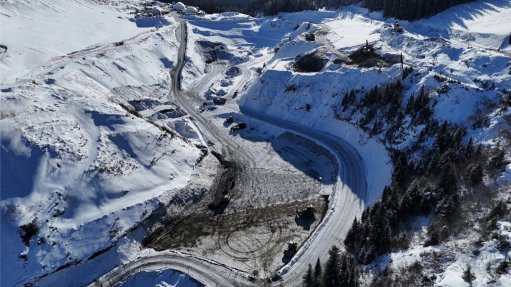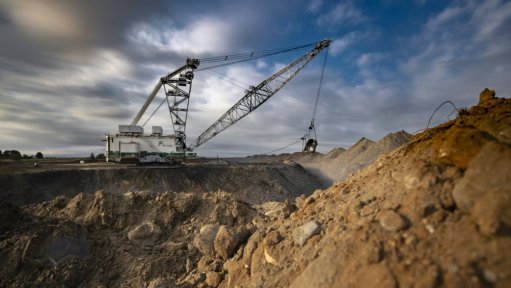Bolivia is rethinking lithium deals with China, Russia in US pivot
Bolivia is awash in the battery metal lithium, but the resource is nearly all trapped underground.
President-elect Rodrigo Paz, who takes office Saturday, is vowing to finally bring Bolivia into the ranks of significant lithium exporters to help alleviate the country’s acute economic crisis. His team first plans to review opaque contracts with Chinese and Russian companies, certify reserves and forge new legislation. But in the face of a market glut and logistical constraints, the landlocked country has no time to lose, experts and outgoing officials say.
“Starting from zero would have a huge cost,” departing President Luis Arce said in an interview. “We could miss the boat.”
Paz, a centrist who defeated conservative rival Jorge Quiroga in last month’s runoff ballot, is under pressure to quickly address painful dollar and fuel shortages and tame rampant inflation that derailed two decades of socialist rule. The new administration’s pledge to review the lithium contracts with China and Russia coincides with Paz’s plan to repair relations with the US.
Previous left-wing administrations in Bolivia have repeatedly tried to extract lithium at scale from the country’s highlands, mostly through a state mining company. At stake is a barely touched expanse of the metal locked beneath salt flats that could help power the world’s growing fleet of electric vehicles.
Bolivia has double the resources of neighboring Chile, but they aren’t yet deemed commercially viable by the US Geological Survey. Deposits suspended in brine have high levels of magnesium, making the lithium more expensive to produce, and the nearest port in Chile is more than 300 miles away.
The Arce government bet on new direct-extraction techniques to circumvent purity issues and shorten the path to production. Last year, state lithium company YLB signed up a unit of China’s Contemporary Amperex Technology and Russia’s Uranium One to develop projects using this method. Neither is close to commercial production and both face congressional scrutiny.
A senior economic adviser to Paz is promising a review. “If there’s something positive to resume it will be resumed, but we believe that those lithium contracts were forged behind the backs of the regions and the country,” José Luis Lupo told Bloomberg News.
“There’s no lithium certification, no lithium law. There’s a lot to do beforehand, but obviously we won’t act in a fundamentalist way,” Lupo said in a telephone call. “We’re going to review what those companies have and see what can be salvaged.”
The Russian ambassador to Bolivia, Dmitry Verchenko, told local media in February that Moscow was expecting Bolivia’s congress to approve the Uranium One contract soon. China’s embassy has not commented.
Analysts agree Bolivia can’t afford to start from scratch as more lithium supply comes onstream around the world in what is already an oversupplied and fast-changing market.
Prices of the key battery ingredient are more than 80% below a late-2022 record. Looking ahead, battery innovations that use lithium alternatives could erode future demand.
But rather than starting over, the new government should leverage the progress made to date, according to Andres Brockmann, a former lithium industry executive and founder of industry consulting firm AquaLitos.
Similarly, any rule changes need to be made quickly, using service contracts rather than trying to introduce new models such as concessions that could linger in congress, he said. The Paz administration could also take another look at companies that pre-qualified in previous bidding rounds, he added.
Such a pragmatic approach could see Bolivia producing from direct extraction in three to four years, Brockmann said.
“The window of opportunity we’re seeing is about to close,” he said. “If we don’t act quickly, it’s likely that we’ll end up with a very good law at a very bad time — five years from now — and it will no longer be applicable.”
Bolivia’s current contribution to the global market is insignificant. YLB hopes to produce about 3 500 tons this year at its conventional evaporation operation, well below a 15 000-ton capacity. Chile produces about 300,000 tons a year.
Even if Paz is able to create a regulatory environment acceptable to investors, politicians and communities, he’ll struggle to turn Bolivia into a significant producer any time soon, said Federico Gay, an analyst at Benchmark Mineral Intelligence. The nation’s investor-unfriendly record of political and social unrest and contract cancellations will take time to repair, while scaling up direct-extraction operations will take years.
“The reality is that Bolivia has a long history of broken reputation regarding foreign investment that needs a certain degree of higher assurances from the government,” Gay said. “I don’t see significant production coming from Bolivia before the end of the decade.”©2024 Bloomberg L.P. All Rights Reserved
Article Enquiry
Email Article
Save Article
Feedback
To advertise email advertising@creamermedia.co.za or click here
Announcements
What's On
Subscribe to improve your user experience...
Option 1 (equivalent of R125 a month):
Receive a weekly copy of Creamer Media's Engineering News & Mining Weekly magazine
(print copy for those in South Africa and e-magazine for those outside of South Africa)
Receive daily email newsletters
Access to full search results
Access archive of magazine back copies
Access to Projects in Progress
Access to ONE Research Report of your choice in PDF format
Option 2 (equivalent of R375 a month):
All benefits from Option 1
PLUS
Access to Creamer Media's Research Channel Africa for ALL Research Reports, in PDF format, on various industrial and mining sectors
including Electricity; Water; Energy Transition; Hydrogen; Roads, Rail and Ports; Coal; Gold; Platinum; Battery Metals; etc.
Already a subscriber?
Forgotten your password?
Receive weekly copy of Creamer Media's Engineering News & Mining Weekly magazine (print copy for those in South Africa and e-magazine for those outside of South Africa)
➕
Recieve daily email newsletters
➕
Access to full search results
➕
Access archive of magazine back copies
➕
Access to Projects in Progress
➕
Access to ONE Research Report of your choice in PDF format
RESEARCH CHANNEL AFRICA
R4500 (equivalent of R375 a month)
SUBSCRIBEAll benefits from Option 1
➕
Access to Creamer Media's Research Channel Africa for ALL Research Reports on various industrial and mining sectors, in PDF format, including on:
Electricity
➕
Water
➕
Energy Transition
➕
Hydrogen
➕
Roads, Rail and Ports
➕
Coal
➕
Gold
➕
Platinum
➕
Battery Metals
➕
etc.
Receive all benefits from Option 1 or Option 2 delivered to numerous people at your company
➕
Multiple User names and Passwords for simultaneous log-ins
➕
Intranet integration access to all in your organisation


















